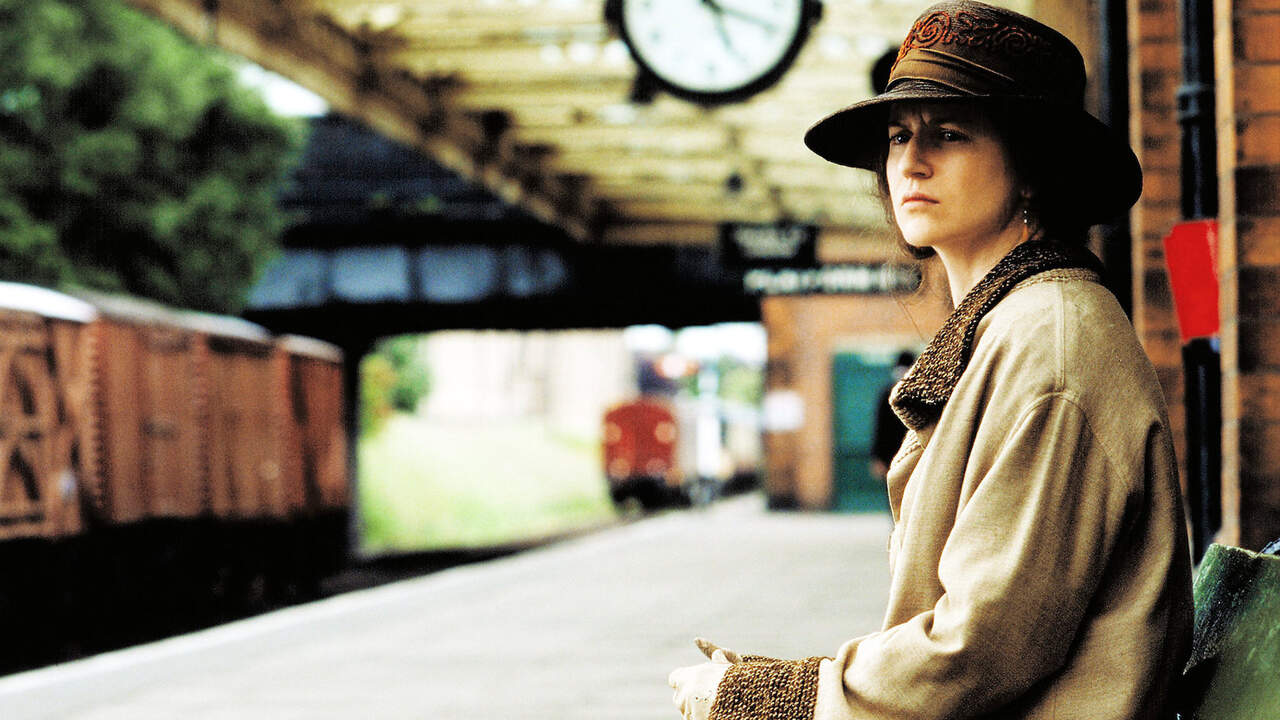
Stephen Daldry's The Hours, based on Michael Cunningham's Pulitzer Prize-winning novel of the same name, strikingly creates a connection between the three main characters existing in three different timelines. In 1923, we see Virginia Woolf (an unrecognizable Nicole Kidman) in the town of Richmond writing Mrs Dalloway. In 1951, a pregnant Laura Brown (Julianne Moore) prepares a cake for her husband's (John C. Reilly) birthday. Finally, the year 2001 gives us Clarissa Vaughan (Meryl Streep) preparing to host a party for her friend/ex-lover Richard (Jack Rovello), an author suffering from AIDS. The screenplay by David Hare shows its ingenuity at the beginning when Virginia muses, "Mrs. Dalloway said she would buy the flowers herself." Cut to Laura Brown reading these words in the Mrs Dalloway novel. Cut to Clarissa saying, "Sally, I think I'll buy the flowers myself." These cuts establish a fascinating link (in our minds) between the three characters. We see Virginia as an author, Laura as a reader, and Clarissa as a character in the novel.
However, it soon becomes clear to us that there is something else that binds the movie's characters. The three women are unhappy and depressed. Virginia has had several nervous breakdowns, Laura is dissatisfied with her familial life, and Clarissa feels that her youthful excitement has been lost. The three characters are often seen staring off into the distance and lost in their thoughts. Their sense of exhaustion is almost palpable. Their emotional state is heightened by muted colors. The cold blues and the dull yellows paint a surrounding devoid of happiness and warmth. The smiles are tinged with sadness - they feel forced, false. While watching the film, you feel as if your energy is being slowly depleted.
For her role as Virginia, Kidman won the Oscar for Best Actress, which she absolutely deserved. Whenever a smile breaks through Virginia's gloomy expressions, something deep inside you wakes up. The feeling is inexplicable. All I can say is that Kidman's performance puts us in Virginia's frequency, making her inner thoughts more coherent. Then there is Moore, who, with her soft face and teary eyes, looks extremely fragile. No wonder it seems as if she is about to break into a million pieces any second. Streep, though very competent, turns out to be the weakest link in terms of performance. Her acting is too conspicuous - the kind that screams for acclaim and an Oscar. When she breaks down in front of her husband's lover (Jeff Daniels), you don't participate in her distress. You observe her skills from a distance.
The blame for this detachment can also be laid on the clever connections. Clarissa's breakdown is not so different from Virginia's screams at a railway station. Vanessa (Miranda Richardson), Virginia's sister, arrives early for an afternoon visit. Daniels's character comes early for the party organized by Clarissa. Virginia as well as Richard are writers. Laura kisses Kitty (Toni Collette), and Virginia kisses Vanessa. When Virginia asks her maid to get ginger from London, another maid cracks eggs, and the sound feels somewhat equivalent to the maid's desire to hit Virginia's head with a stick. Later, when we again notice another character breaking eggs, we simply recall the maid incident. Some of the parallels are too explicit and too obvious. When Kitty asks Laura what Mrs Dalloway is about, she says, "Oh, it's about this woman who's incredibly... Well, she's a hostess, and she's incredibly confident, and she's going to give a party. And maybe because she's confident, everyone thinks she's fine." Almost immediately, Kitty, who had been behaving rather confidently, starts crying (she's not fine).
Alas, we become more absorbed with linking similar scenes together, which separates us from the emotions of the characters. We are more impressed by the smart construction than whatever deep or meaningful thing the movie wants to say about these women. The sadness in The Hours comes across as an infectious, hereditary disease (it passes on from a mother to her son). The Hours fills you with many interesting thoughts, but the movie itself fails to impress overall. Instead of a compelling, satisfying experience, it looks like the work of a student who wants full marks from his professor. The movie is conceived for congratulatory handshakes and a pat on the back. The cleverness, the craft, turns out to be more alluring than the personal experiences of the characters.
Final Score- [6/10]
Reviewed by - Vikas Yadav
Follow @vikasonorous on Twitter
Publisher at Midgard Times
Hi Everyone, after a due consideration, we have decided that we will be open for donations to help us in managing our website. We will be greatful for any kind of amount we receive. Thanks!
— Midgard Times 🎬 (@Moviesr_net) January 4, 2026
PayPal- [email protected] pic.twitter.com/DlNNz5Npm5
Get all latest content delivered to your email a few times a month.
Bringing Pop Culture News from Every Realm, Get All the Latest Movie, TV News, Reviews & Trailers
Got Any questions? Drop an email to [email protected]